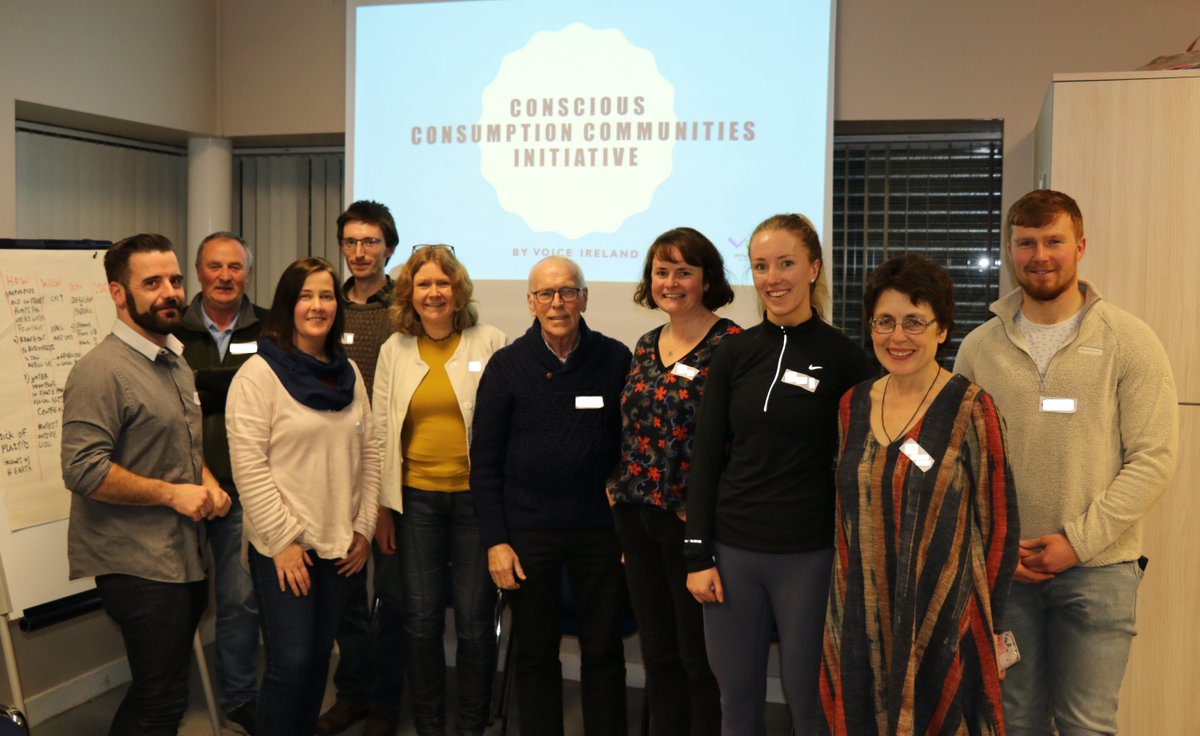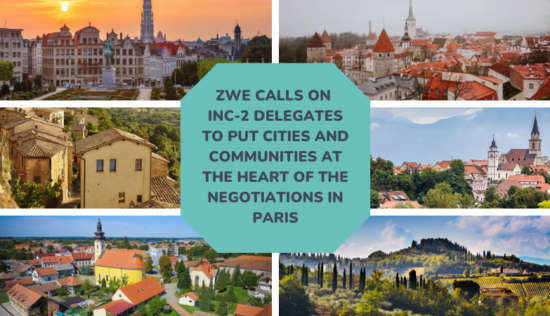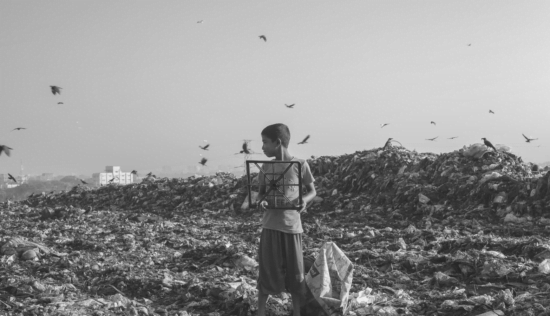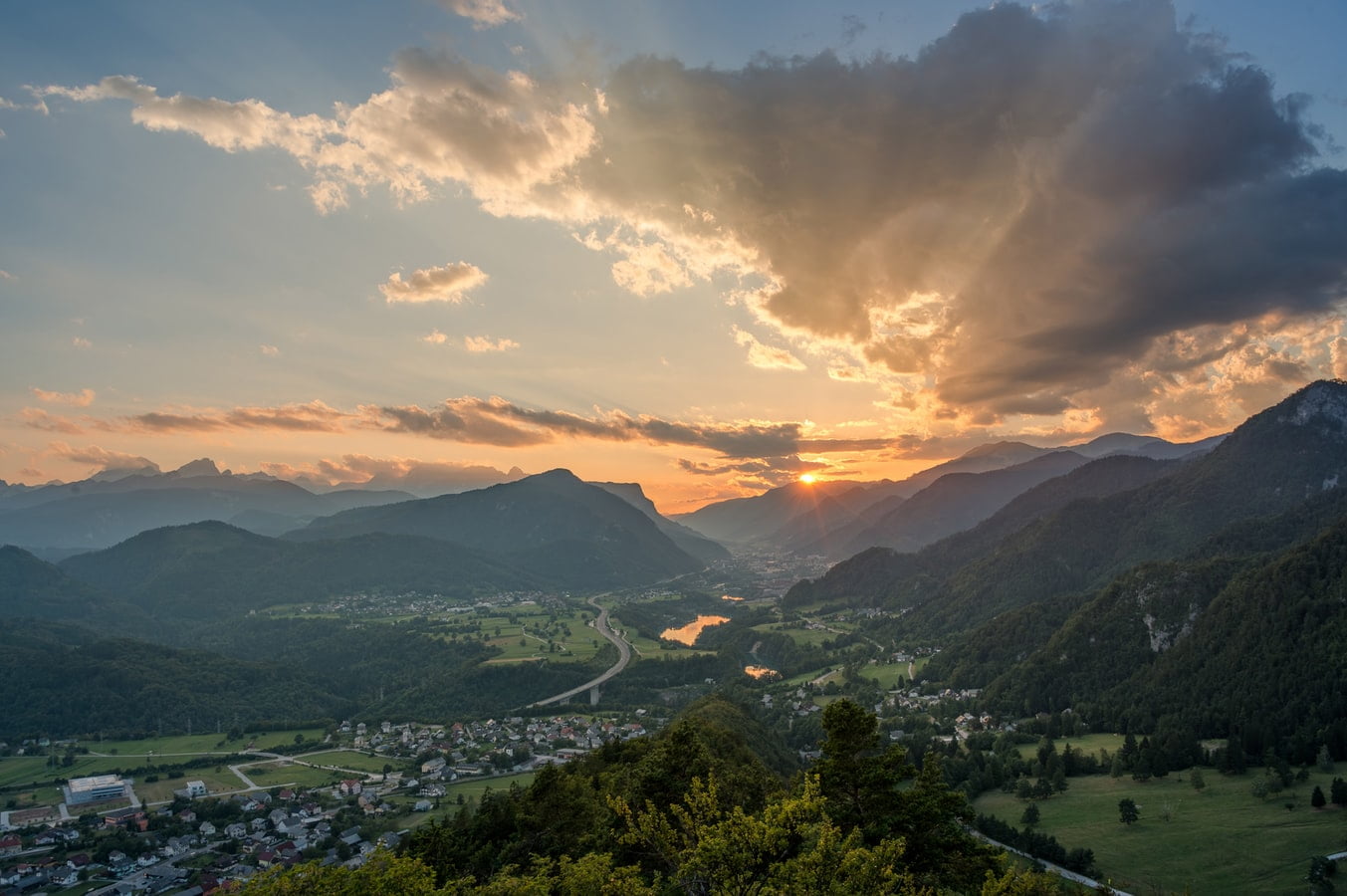Hi, Aoife, can you briefly introduce yourself: how long have you been in the field and what got you into (zero) waste?
I am a project manager with VOICE Ireland. I have been working in the environmental field for nearly twenty years, mostly in conservation, environmental education and the delivery and roll out of environmental projects. I started working with VOICE two years ago on the Recycling Ambassador Programme, which was a national programme aiming to improve recycling rates and reduce bin contamination in Ireland.
How does the programme work? What are the main objectives of the Conscious Consumption Communities programme?
The aim of the programme is to support communities to further their journey toward sustainable living. This is done through community activation workshops, ongoing support and linking in with existing community action programmes across Ireland.
What made you decide to start it? And why have you decided to focus on the local/city level?
The programme was started to try to support groups who were coming to us looking for guidance around reducing their waste and consumption in their own communities. We wanted to have a programme which could support any community no matter where they were coming from, to further their journey towards reducing their waste and working towards sustainability.
How would you briefly describe the growth of the zero waste movement in Ireland?
It feels like ‘zero waste’ has gone mainstream in the last couple of years in Ireland. There has been a huge public swing against single use items, in particular plastic, and towards sustainability. Climate change is also on everyone’s tongues, so I think that together this has brought the topic of waste to the forefront of everyone’s minds and is filtering into every household in Ireland. Programmes such as the Conscious Cup Campaign are very effective at highlighting the impact that individuals have in terms of our collective use of disposable items and how we can reduce this. It facilitates a reduction in the use of single use items, but also increases visibility and creates a much needed national conversation around waste. We still have a long way to go, but this public awareness certainly helps build momentum and put pressure on the Government to implement better policies and enable change.
What do you identify as the main challenges to actually changing the way we currently deal with waste?
The best way to deal with waste is not to generate it in the first place. We need to rethink the whole lifecycle of products. People are starting to realise that the way we consume is not sustainable, but this needs to filter through to all levels, from the manufacturers to the retailers, consumers and legislators. There is some much needed legislation coming through such as the EU ‘Single-Use Plastics Directive’ but we need to keep the pressure up, there is a great opportunity to improve our efficiency, reduce waste and remove very damaging pollution from our seas and countryside.
What reactions/goal have you already achieved and what are the future development of the Conscious Consumption Communities Programme?
Generally, the programme has been very well received. Most groups are happy to get some outside input, fresh ideas and guidance on making a plan and how to implement some of their ideas and deal with local issues which may affect them. There is an impressive amount of work being done in communities across Ireland and we are delighted to support this and be a part of it.
A couple of comments from the communities we have worked with:
“It enabled us to formulate a Sustainability Plan for area, a plan which we worked from and still continue to use” – Máire Uí Bhaoill, Falcarragh Tidy Towns.
“We worked with Aoife to draw up action plans. Aoife helped to motivate the Board and get us to understand how we could progress, at a time where the amount of work to be done seemed daunting.” – Dunkineely Development Group, Co Donegal.
You can find out more about VOICE and their work here.





